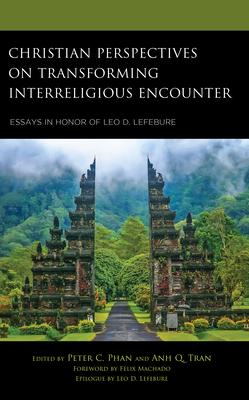Christian Perspectives on Transforming Interreligious Encounter underscores the urgency of interreligious dialogue for contemporary society, aiming to foster interfaith understanding, justice, and peace. The initial section focuses on novel approaches to engaging with the religious Other through non-Christian sacred texts. Contributors explore the Jewish-Christian relationship, offer Christian interpretations of Hindu, Buddhist, and Confucian scriptures, and discuss the Qurʾān's potential to refine Christian theology. The dangers of comparative theology are warned against, and alternative perspectives, such as Asian liberation theology, are proposed for situating religion critically, as well as share the insights on Christian engagement with Zen practice. The second part explores the transformation of key Christian doctrines through interreligious encounters. Contributors delve into topics such as the conditions for faith and divine revelation, formulating a Christology in dialogue with Asian traditions, and understanding the Spirit as a source of questioning. They investigate the communitarian dimension of religious faith, discuss the Catholic Church's stance on interreligious dialogue, examine the role of biblical hermeneutics in decolonizing theology, and reflect on the existential threat of ecological destruction. The third part pays tribute to Leo Lefebure, emphasizing his impact on Catholic theology and comparative theology, and concludes with Lefebure's epilogue, providing him with the last word.

Christian Perspectives on Transforming Interreligious Encounter: Essays in Honor of Leo D. Lefebure
Christian Perspectives on Transforming Interreligious Encounter underscores the urgency of interreligious dialogue for contemporary society, aiming to foster interfaith understanding, justice, and peace. The initial section focuses on novel approaches to engaging with the religious Other through non-Christian sacred texts. Contributors explore the Jewish-Christian relationship, offer Christian interpretations of Hindu, Buddhist, and Confucian scriptures, and discuss the Qurʾān's potential to refine Christian theology. The dangers of comparative theology are warned against, and alternative perspectives, such as Asian liberation theology, are proposed for situating religion critically, as well as share the insights on Christian engagement with Zen practice. The second part explores the transformation of key Christian doctrines through interreligious encounters. Contributors delve into topics such as the conditions for faith and divine revelation, formulating a Christology in dialogue with Asian traditions, and understanding the Spirit as a source of questioning. They investigate the communitarian dimension of religious faith, discuss the Catholic Church's stance on interreligious dialogue, examine the role of biblical hermeneutics in decolonizing theology, and reflect on the existential threat of ecological destruction. The third part pays tribute to Leo Lefebure, emphasizing his impact on Catholic theology and comparative theology, and concludes with Lefebure's epilogue, providing him with the last word.